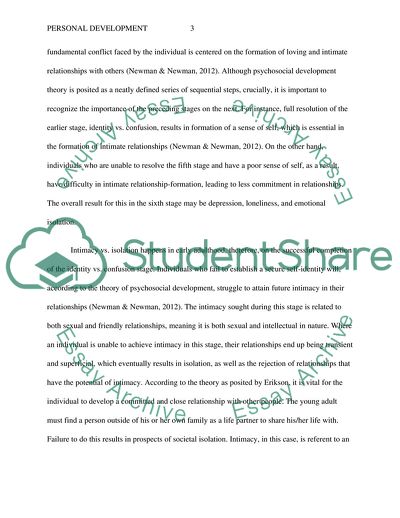Cite this document
(The Sixth Stage of Psychosocial Development, Intimacy vs. Isolation Coursework Example | Topics and Well Written Essays - 1750 words, n.d.)
The Sixth Stage of Psychosocial Development, Intimacy vs. Isolation Coursework Example | Topics and Well Written Essays - 1750 words. https://studentshare.org/psychology/1829268-personal-development
The Sixth Stage of Psychosocial Development, Intimacy vs. Isolation Coursework Example | Topics and Well Written Essays - 1750 words. https://studentshare.org/psychology/1829268-personal-development
(The Sixth Stage of Psychosocial Development, Intimacy Vs. Isolation Coursework Example | Topics and Well Written Essays - 1750 Words)
The Sixth Stage of Psychosocial Development, Intimacy Vs. Isolation Coursework Example | Topics and Well Written Essays - 1750 Words. https://studentshare.org/psychology/1829268-personal-development.
The Sixth Stage of Psychosocial Development, Intimacy Vs. Isolation Coursework Example | Topics and Well Written Essays - 1750 Words. https://studentshare.org/psychology/1829268-personal-development.
“The Sixth Stage of Psychosocial Development, Intimacy Vs. Isolation Coursework Example | Topics and Well Written Essays - 1750 Words”. https://studentshare.org/psychology/1829268-personal-development.


